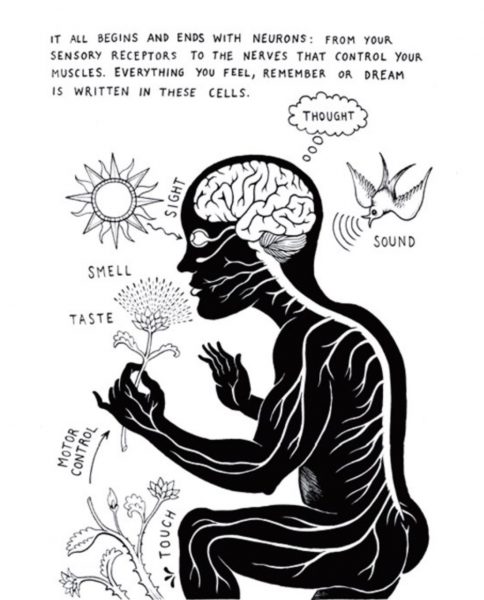
With all the hype about the Olympics (both the athletics and the scandals), I figured it would be appropriate to dedicate this week’s blog post to the topic of physical activity and how it relates to mental health.
While we were all raised knowing that “exercise is good for you”, somehow that message seems to get lost for many of us somewhere along the way. Either we are turned off by our exposure to exercise early in life (perhaps it was too intense, too competitive, or conversely, not stimulating enough) or perhaps we understand the benefits, but have either fallen out of practice or lack the discipline necessary to keep it up. My personal journey began as intolerance for exercise, which then became tolerance, which then became acceptance, which then became hobby, then a lifestyle and finally a chronic internal struggle of the will to overcome inertia. More on that later…
I grew up in an area (Boston) where sports and athleticism are idealized. It took up the majority of community time and was a major part of our culture. Most people at my high school played 3 sports – one for each academic athletic season: Fall, Winter and Spring. Even over the summer, people participated in baseball leagues, football and soccer camps and other forms of “summer training” to stay in shape for the fall season. Socially, people in town would spend evenings and weekends attending local games. When there wasn’t a town game, people congregate to catch the professional games on a television at the local bar. The Super Bowl, World Series and Finals were like holidays whenever the Boston/New England teams made it that far (which became common when I was in high school). Skipping school for the parades was expected. In my extended family, whether it was at a wedding, on vacation, or just Sunday afternoon, if a game was being played, it was being watched.
All that being said, I was still never a sports person. I didn’t like competition. The act of exercise made me feel sweaty and dirty (which I didn’t like) and because I was always so out of shape, I would get winded easily and so couldn’t perform well – thus feelings of inadequacy abounded. All in all sports were not for me – give me a pad of paper and a pencil and I was happy. I’d rather draw than exercise any day.
I’d say that first my loathing of exercise first started to change when I got to high school. My cousin was (in my mind) equally as un-athletic as I was, so when I found out he had not only signed up for a karate class, but was regularly attending and succeeding at it, I was characteristically outraged. I was not going to let him be better at something than I was! Even if it was something as uninteresting to me as physical activity. So I listened to my jealousy and decided to try my hand at it as well.
I was too old for the classes, so my mother signed me up for individual lessons instead. At my first lesson, the instructor had me do some warm-ups to get my blood flowing before we began the actual training. Let’s just say I was so out of shape, the warm ups were my training. I almost fainted after only a few minutes of activity. The instructor said that I needed to start doing some cardio to get my body used to the physical activity that we would be doing in our sessions – he recommended I try jogging to help my body adapt.
Needless to say, it was that embarrassing moment of nearly passing out from a few high kicks that led me to start jogging, which then led me to start running, which then led me to join my high school cross country team, which then led me to start running races with my father, which then led me to love running, which then led to a more active lifestyle overall… So when people say certain feelings (jealousy for instance) are “bad”, I would say it depends on what you do with them. In my case, my jealousy helped me to make a positive change in my life. Yay envy!
Back to the topic of physical wellness and how it relates to mental wellness. I shared the story above just to give some insight into my own personal relationship with exercise. What I at first found daunting, uncomfortable, and shameful, I came to embrace. A large part of that is because I came to like the way I felt when I ran more than when I didn’t. It gave me a sense of accomplishment, made positive changes to my appearance and provided me with a physical “high” (thanks to endorphins – naturally occurring opiates which are produced during exercise) all which made me feel good and increased myself esteem. What wasn’t to love?
But don’t be fooled folks – while I did have this exercise epiphany in mid-highschool, by no means have I been a sports saint ever since. I’ve fallen from grace and returned to my inactive ways on various occasions. That being said, when that happens, I consistently find myself feeling worse off not exercising than before when I was. Think of it as having withdrawal symptoms, only not nearly as intense of course. I feel and look older, I have less energy, I slow down, I get tired more easily, I become achy, moody and distracted. And this can persist for long periods of time (usually until I work out again). Just this week I went out for a run after having taken too long off and I felt drastically better afterward than before. But for whatever reason, during the interim, I forget or choose not to remember how much better I feel when I exercise, avoiding it instead, thereby prolonging my own suffering. Don’t ask me why – that’s something for a therapist to sort through with me! But my guess is that it has to do with some mental fog caused by the lack of physical activity itself. Like the lotus eaters of the Odyssey, my inactivity causes me to forget myself and get stuck in this inactive funk which then extends to all aspects of my life. Like I said – inertia.
The point is, my experience shows me that exercise is essential for good mental health. My mind is not some separate disembodied entity which resides inside of me, the way I sometimes think of it. My mind is controlled by my brain which is a physical organ which is bound by physical mechanisms and extends throughout my entire body by way of my nervous system. Thus it follows that a healthy body does in fact help to maintain a healthy brain – they are literally intertwined!
As mental health advocates, we need to ensure that people have access to what they need to maintain good mental health. While this of course includes access to quality clinicians who provide effective evidence based therapies and medications which do the least harm while providing the greatest benefit (all at an affordable cost) it also means that people have the information and resources they need to successfully manage their mental health through their own self-care, for when they aren’t in the doctor’s office or when they’re medications don’t prove to be magic bullets. One of these resources is exercise.
While exercise can’t cure all mental illness, it does (when done regularly and in a safe way) have benefits for all brains and therefore all people. A therapist once told me that the best mental health medication – for mood, energy, sex drive, etc – is exercise. And my experience has reinforced her advice.
With all the focus on the Olympics this summer, let’s ensure that we are working to ensure that people everywhere have the opportunity to maintain their health – both physical and mental – through adequate exercise. This means ensuring a healthy environment, safe neighborhoods, living wage jobs which allow time for leisure, nutritious food, freedom of information to learn exercise science and more. And social justice aside, the next time you are feeling low, go for a walk. If you’re like me, you’ll have forgotten just what a difference a few steps can make.



